Indigenous Governance Database
Mary Beth Jager

Our lands tell our stories: supporting Indigenous co-led research through the Indigenous Foods Knowledges Network
The Indigenous Foods Knowledges Network (IFKN) brings together Indigenous researchers and community leaders from the Arctic and U.S. Southwest along with non-Indigenous researchers to foster cross-cultural interdisciplinary knowledge exchange about sovereignty of Indigenous foods. IFKN draws on…
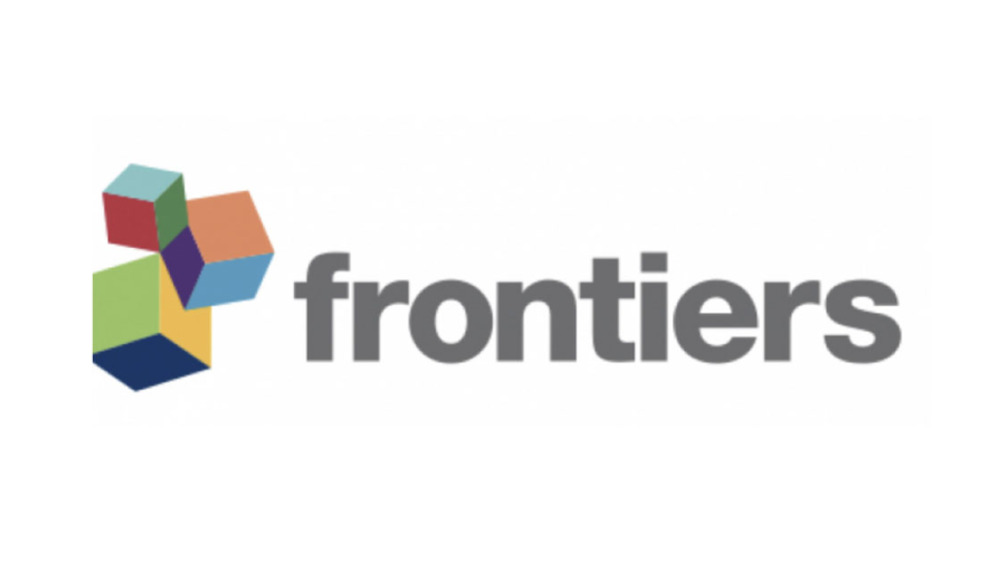
Indigenous Peoples and research: self-determination in research governance
Indigenous Peoples are reimagining their relationship with research and researchers through greater self-determination and involvement in research governance. The emerging discourse around Indigenous Data Sovereignty has provoked discussions about decolonizing data practices and highlighted the…

Indigenous Peoples' Rights in Data: a contribution toward Indigenous Research Sovereignty
Indigenous Peoples' right to sovereignty forms the foundation for advocacy and actions toward greater Indigenous self-determination and control across a range of domains that impact Indigenous Peoples' communities and cultures. Declarations for sovereignty are rising throughout Indigenous…
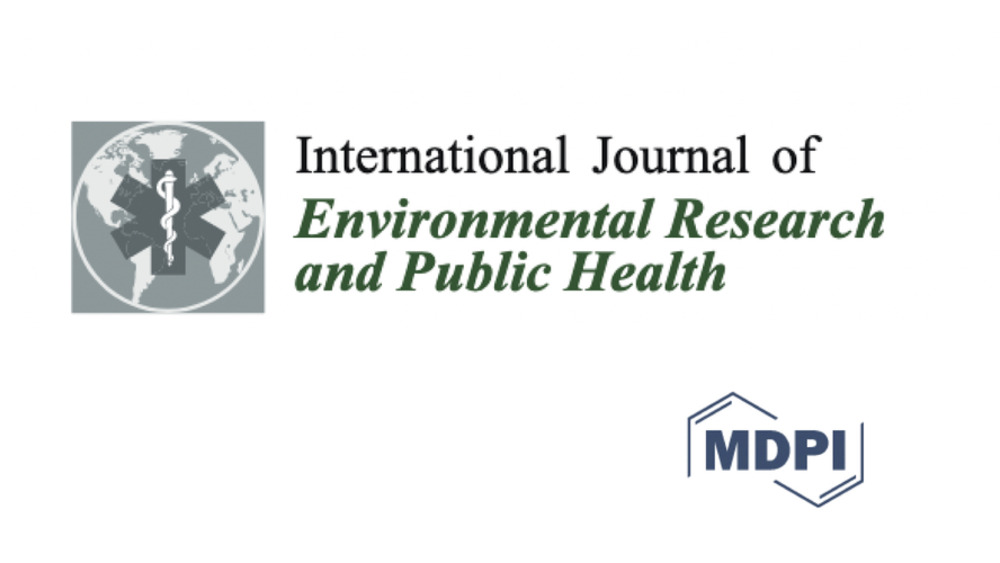
Reclaiming Indigenous Health in the US: Moving beyond the Social Determinants of Health
The lack of literature on Indigenous conceptions of health and the social determinants of health (SDH) for US Indigenous communities limits available information for Indigenous nations as they set policy and allocate resources to improve the health of their citizens. In 2015, eight …
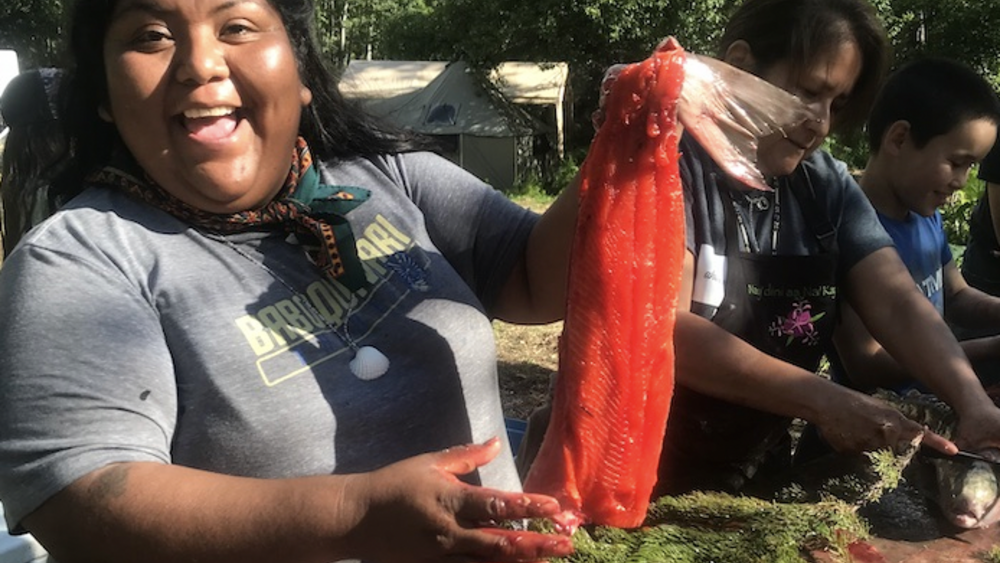
Indigenous Foods Knowledges Network: Facilitating Exchange between Arctic and Southwest Indigenous Communities on Food and Knowledge Sovereignty
On a sunny morning in June of 2019, our hosts at the Athabaskan Nay'dini'aa Na'Kayax' Culture Camp, located near Chickaloon Native Village in south-central Alaska, set up a table near the smoke house and demonstrated how to fillet salmon. It was salmon season in Chickaloon, and young campers were…
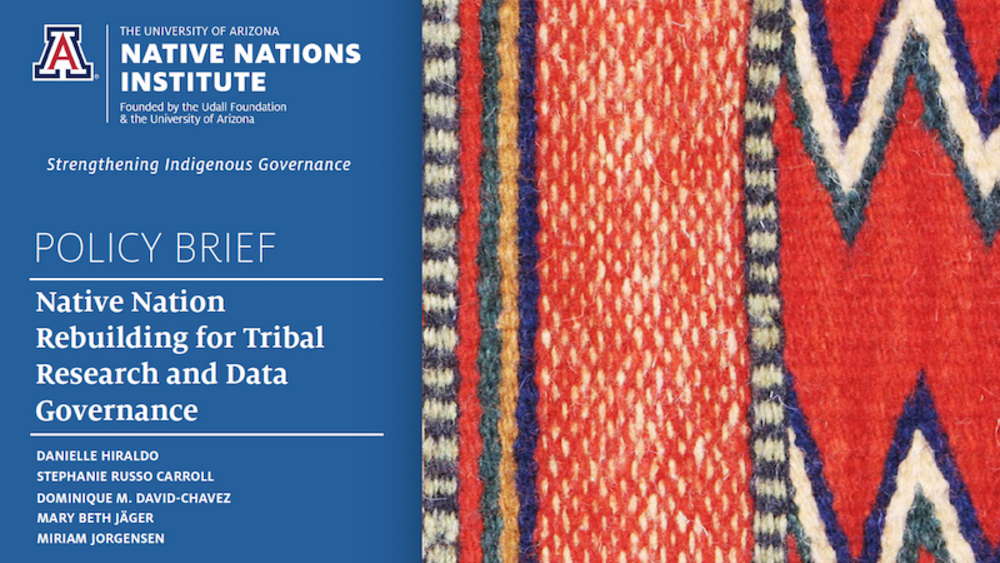
Policy Brief: Native Nation Rebuilding for Tribal Research and Data Governance
Indigenous Peoples conducted research long before their interactions with European settlers. Whether through observation or practice, research in a non-western context was woven into Indigenous ways of knowing and being. It continues to inform Indigenous Knowledges of landscapes and natural…
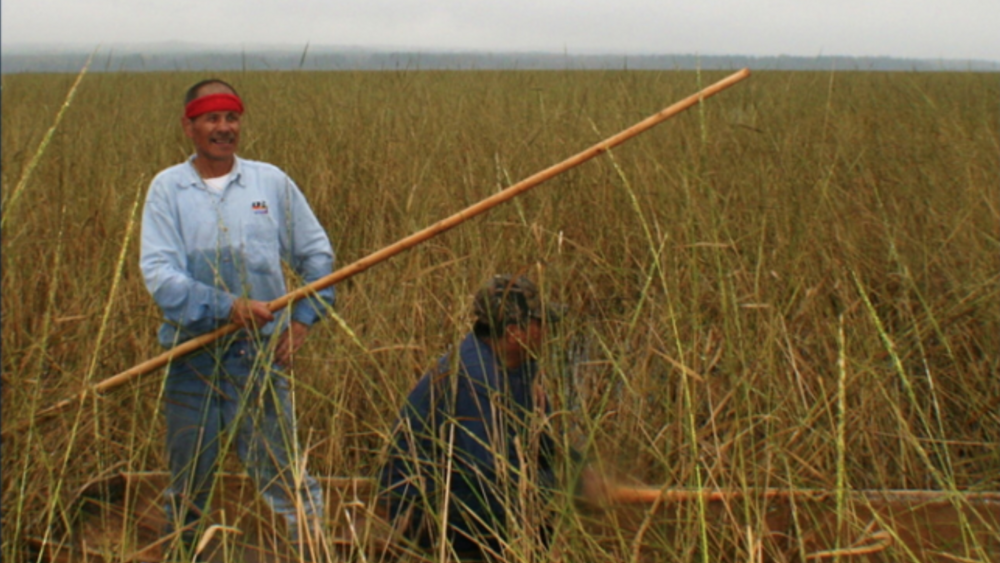
Building an Indigenous Foods Knowledges Network Through Relational Accountability
In recent decades, there has been a movement toward rectifying injustices and developing collaborations between Indigenous communities and mainstream researchers to address environmental challenges that are of concern to Indigenous Peoples. This movement, primarily driven by Indigenous community…
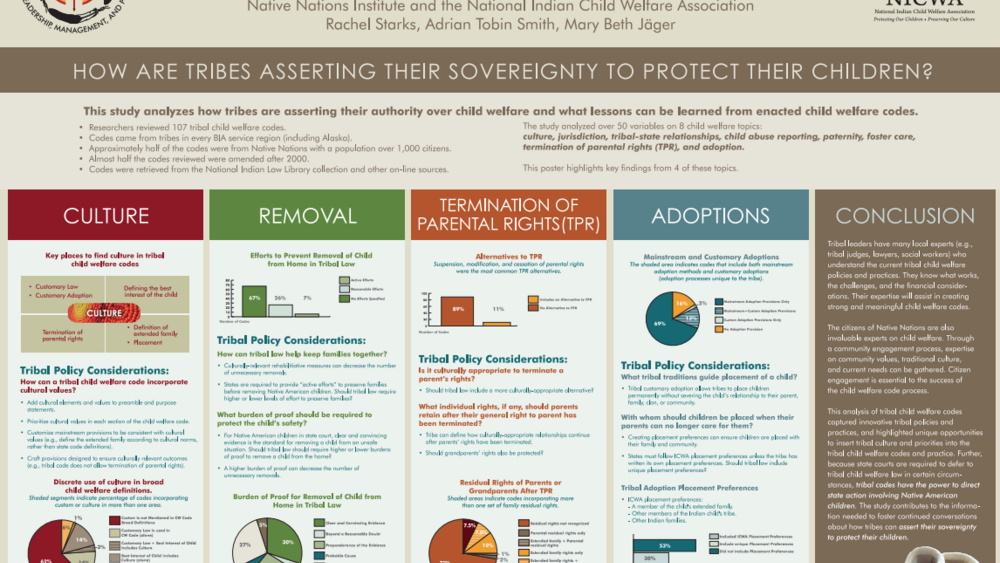
Protecting Our Children: A Review of 100+ Tribal Welfare Codes
NNI researchers Mary Beth Jäger (Citizen Potawatomi), Rachel Starks (Zuni/Navajo), and National Indian Child Welfare Association governmental affairs staff attorney, Adrian Smith shared the results of an ongoing study on culture, removal, termination of parental rights, and adoption in tribal child…
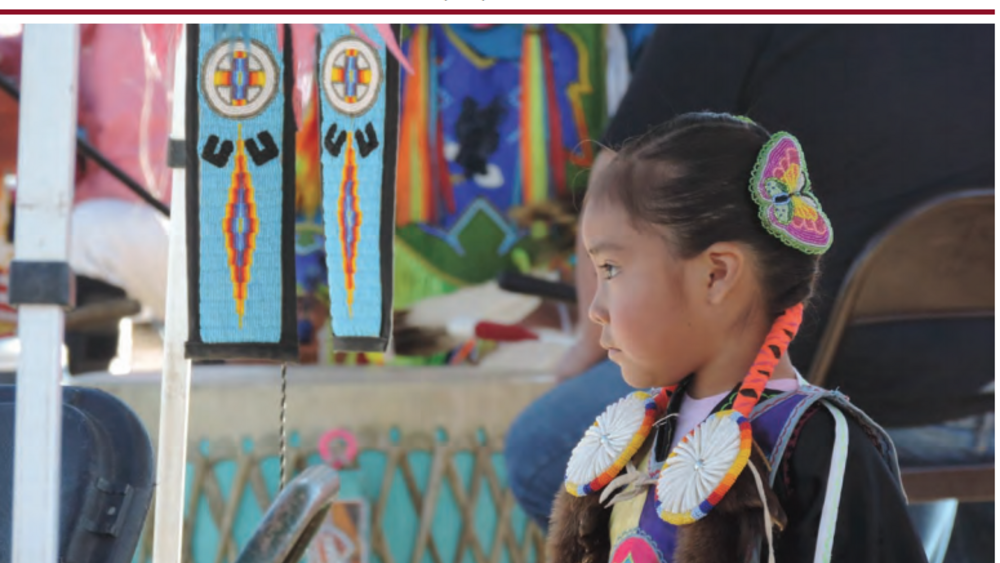
Tribal Child Welfare Codes as Sovereignty in Action. 2016 NICWA conference edition
With passage of the Indian Child Welfare Act of 1978 (ICWA), Congress formally recognized Native nations’ inherent authority to govern child welfare matters and provided support for tribal self-determination over child welfare. Because ICWA “assumes that a tribal code is the governance mechanism by…
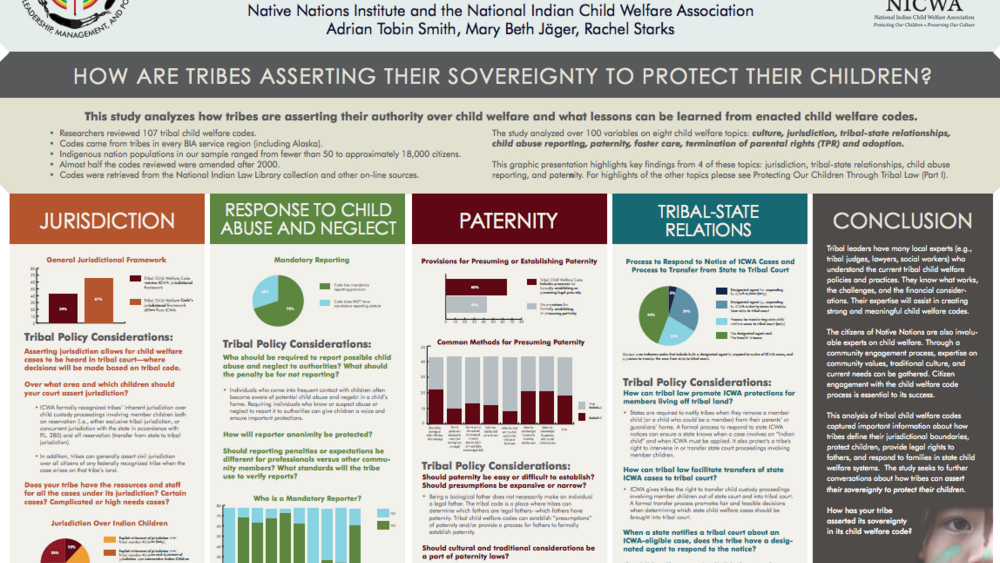
Protecting Our Children Through Tribal Law: Part II
This graphic presentation highlights key findings from 4 of these topics: jurisdiction, tribal-state relationships, child abuse reporting, and paternity. For highlights of the other topics please see Protecting Our Children Through Tribal Law (Part I).
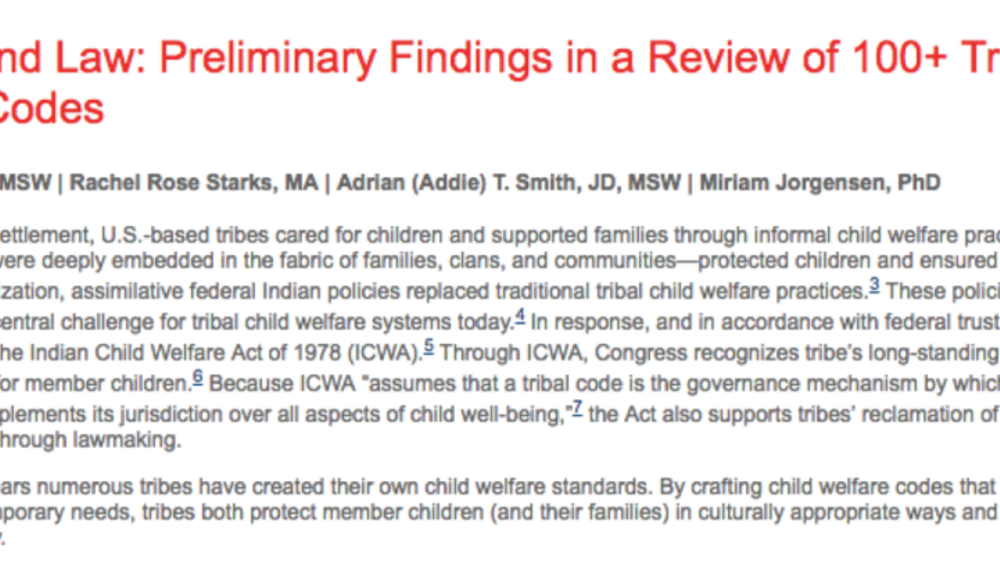
Culture and Law: Preliminary Findings in a Review of 100+ Tribal Welfare Codes
Over the last 35 years numerous tribes have created their own child welfare standards. By crafting child welfare codes that balance traditional culture and contemporary needs, tribes both protect member children (and their families) in culturally appropriate ways and reaffirm their sovereign…
